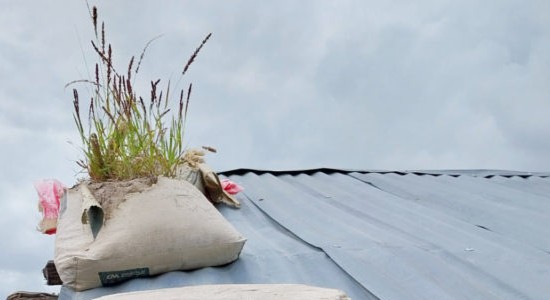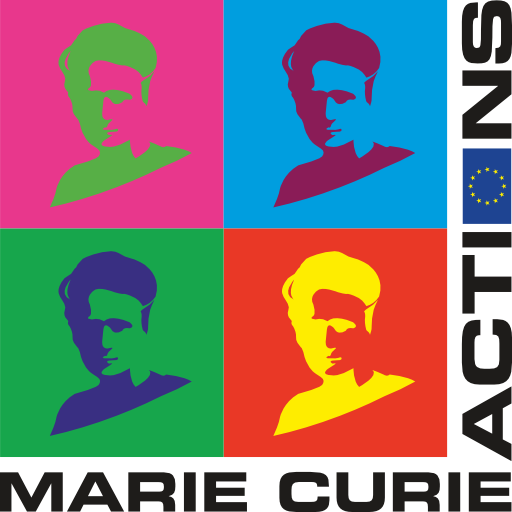

HOme WAves: Home-making and life trajectories in flood-risk areas of Central Mozambique
HOWA is an interdisciplinary research project belonging to Critical African Studies, examining how home-making is reshaped under flood risk exposure in Central Mozambique.
The project is premised on the conception of homes as speaking subjects telling us about the entanglements between individual paths, kinship, the environment and the broader socio-political context. In Mozambique’s low-income settings, as in other African contexts, people speak through their homes. House-building is a self-authored and symbolic (non-spoken) language and, therefore, a fertile analytical field.
In conditions of enforced material, social and symbolic disruption, as is the case with repeated experiences of flooding, home-making and house building together reveal the complex life paths enacted within (and without) them. Floods are a major and increasingly frequent cause of disaster in East Sub-Saharan Africa. The 30% of Mozambican population live in permanent flood vulnerability.

HOWA investigates how home-making is reshaped in (i) materiality, (ii) sociality and (iii) temporality under flood exposure and displacement, and which life trajectories are enacted by- and entangled with- the act of home-making pre-and post-flood experiences. The project is grounded analytically within relational and interdisciplinary approaches applied to the multiple dimensions of displacement. Different type of settings (urban areas, resettlements and transitional sites) are explored, making use of clusters of methods guided by the house biographical approach.
The method becomes, along the research journey, an activism enacted by research. By innovatively bringing together home-making, displacement, and life trajectories, HOWA holds social and policy relevance in a time in which disaster-driven displacement of already vulnerable people is becoming more frequent.
In-depth studies at the micro-scale proposed by HOWA, would impact interventions through revealing the links between risk and spatial and social belonging.
Through HOWA, looking at home-making becomes a way of thinking, conceptually and analytically, that breaks out of the limitations of mostly operationally-oriented approaches to crisis and displacement contexts, reinforced by short-term, instrumental observations that fail to recognise the complex and much deeper roots of such scenarios. The project responds to the call for a relational, intersectional, de-colonial approach applied to the intimate and multi-layered experiences of inhabitation in states of disruption.
The micro-scale, ethnographic scrutiny is insufficiently used in disaster studies and policies. By taking into account what makes home over an extended timeline of flooding events, the project aims at putting critical ethnography and Africanist interdisciplinarity in dialogue with policy thinking, moving beyond static concepts of inhabitation. This supports the understanding of people’s post-disaster priorities enacted through the symbolic significance of home, creating ground for policy rethinking through strongly empirical micro-studies in complex scenarios.
Critical ethnography and Africanist interdisciplinarity
The relational and interdisciplinary nature of the research objectives calls for ethnographic methods in which orality and materiality are explored simultaneously. House biographies are at the core of a cluster of methods that reveal the multiple social, symbolic and material paths embedded in acts of home-making both pre- and post-flood exposure contexts. Rather than putting architectural and social science approaches and methods in dialogic tension, the project considers them in productive conversation, generating a unique emic perspective: biographical narratives (verbal and non-verbal) are merged with, and reinforced by, visual, architectural and participatory methods.
The gender aspects implied in the research objectives are addressed specifically through interviewing female family members around: home-space appropriation (care work, artefacts), mobility (daily routines) and sociality (networks, relationships).
Homes as non-verbal biographical subjects
HOWA’s methodology challenges the dominance of verbal interview-based methods (with only human actors), considering homes as non-verbal biographical subjects that tell us about their changing social and political-economic significance. Two scales of investigation are addressed: the dimension of the house itself, where nuanced changes in spaces and relations stand as a lexicon of the home-making journey and of its ruptures, and the broader (re)settlement dimension.
House biography entails an intense focus, at the micro-scale, of the personal and material histories of selected houses, to portray the relationship between home-making and house-building, using mainly narrative and some visual methods. The material insights from these biographies shed light on altered architectural and building choices and on a new metaphorical meaning of houses as part of life economies. Socially, they reveal the set of networks and relationships involved in attempts to remake a physical house and a sense of belonging. The temporal dimension addressed through the biographies focuses on the moments of rupture associated with flood-related decisions on home-making and altered notions of the future.
Conference project presentation
- 25-28 June 2025: ECAS 2025 conference, Prague, with the paper entitled “Life trajectories and displacement. The materiality and sociality of home-making in Central Mozambique resettlements through a gendered and house biographical lens” in the panel “Mobile urban lives – migration, displacement, and belonging”.
- 12-13 June 2025: The Workshop "Liquid Urbanism" at the University of Basel, in which Mazzolini will give a speech regarding the politics of resettment in Mozambique.
- 12-14 September 2024: ASAI (Italian Association of African Studies) conference, “Longing for Belonging: Communities and Divides in Africa” (online presentation).
- 8-11 April 2024: ASA (Association of Social Anthropologists, UK), "Critical Junctions, Anthropology on the move", with the paper "Gendered Resettlements. Womenhood, motherhood and the reframing of life trajectories through home-making in Central Mozambique" at the panel "Motherhood on the move".
Key lectures at the Politecnico di Milano (mainly at the Master "Design for Development").
Co-teaching UCPH "Master in African Studies" courses
- Advanced Research methods
- Critical Development and Planning Policy Analysis
- Introduction to African Studies
- Nature, population and society
- Project Supervisor Prof. Amanda Hammar, University of Copenhagen.
- Prof. Morten Nielsen, National Museum of Denmark.
- Prof. Julia Pauli, University of Hamburg.
- Prof. Jorgen Eskemose Andersen, Royal Danish Academy.
- University of Copenhagen, Centre of African Studies
- Politecnico di Milano, Department of Architecture and Urban Studies.
- In collaboration with Centre of African Studies of the University Eduardo Mondlane of Maputo (CEA), through an interdisplinary workshop on Displacement conducted in October 2024, which will lead to a publication of a CEA special issue.
 It’s urgent to respond to the call for a relational, intersectional, de-colonial approach applied to the intimate and multi-layered experiences of inhabitation in states of disruption.
It’s urgent to respond to the call for a relational, intersectional, de-colonial approach applied to the intimate and multi-layered experiences of inhabitation in states of disruption.
Looking at home-making is a way of thinking and seeing that can break out of the limitations of mostly operationally-oriented approaches to crisis and displacement contexts.
By taking into account what makes home over an extended timeline of flooding events, makes understanding people’s post-disaster priorities enacted through the symbolic significance of home, creating ground for policy rethinking through strongly empirical micro-studies in complex scenarios.
Contact
Anna Mazzolini
Post-Doc Marie Curie Fellow
Centre of African Studies
ama@teol.ku.dk
Project period
1 April 2023 - 31 July 2025
Funded by


News
Workshop participation
Liquid Urbanisms in Africa: Thinking Climate Adaptation with and through Water
CEA/CAS Workshop
